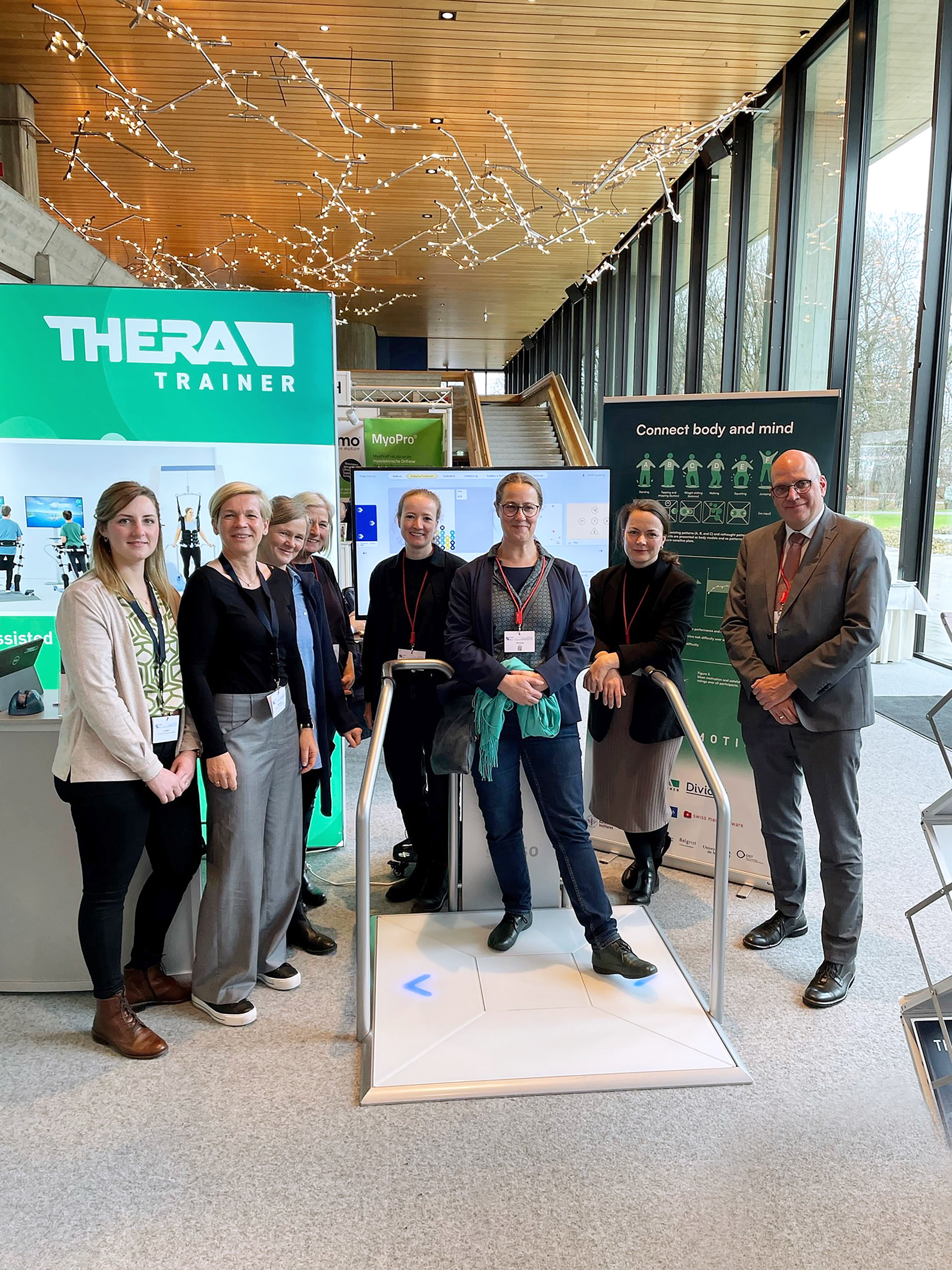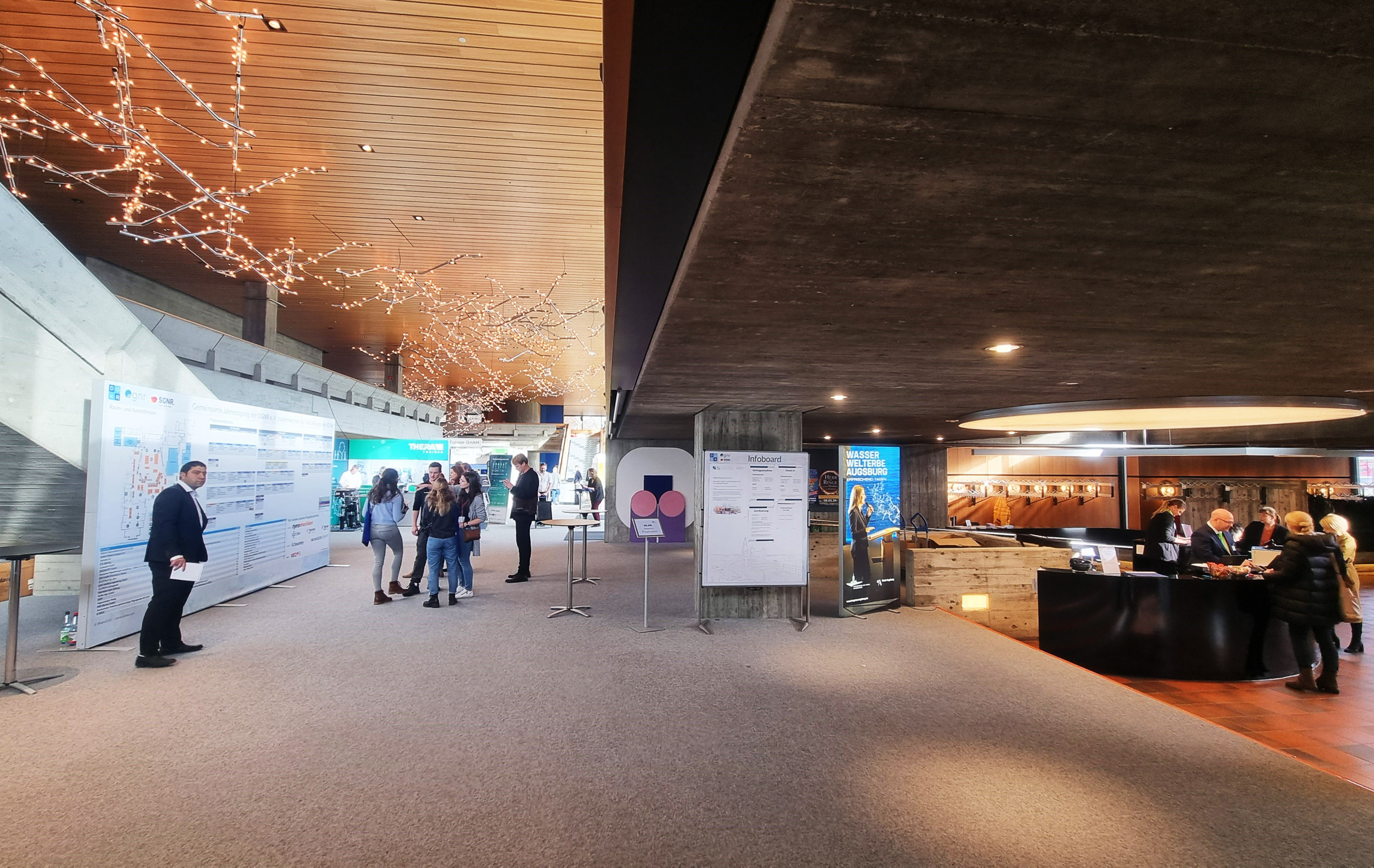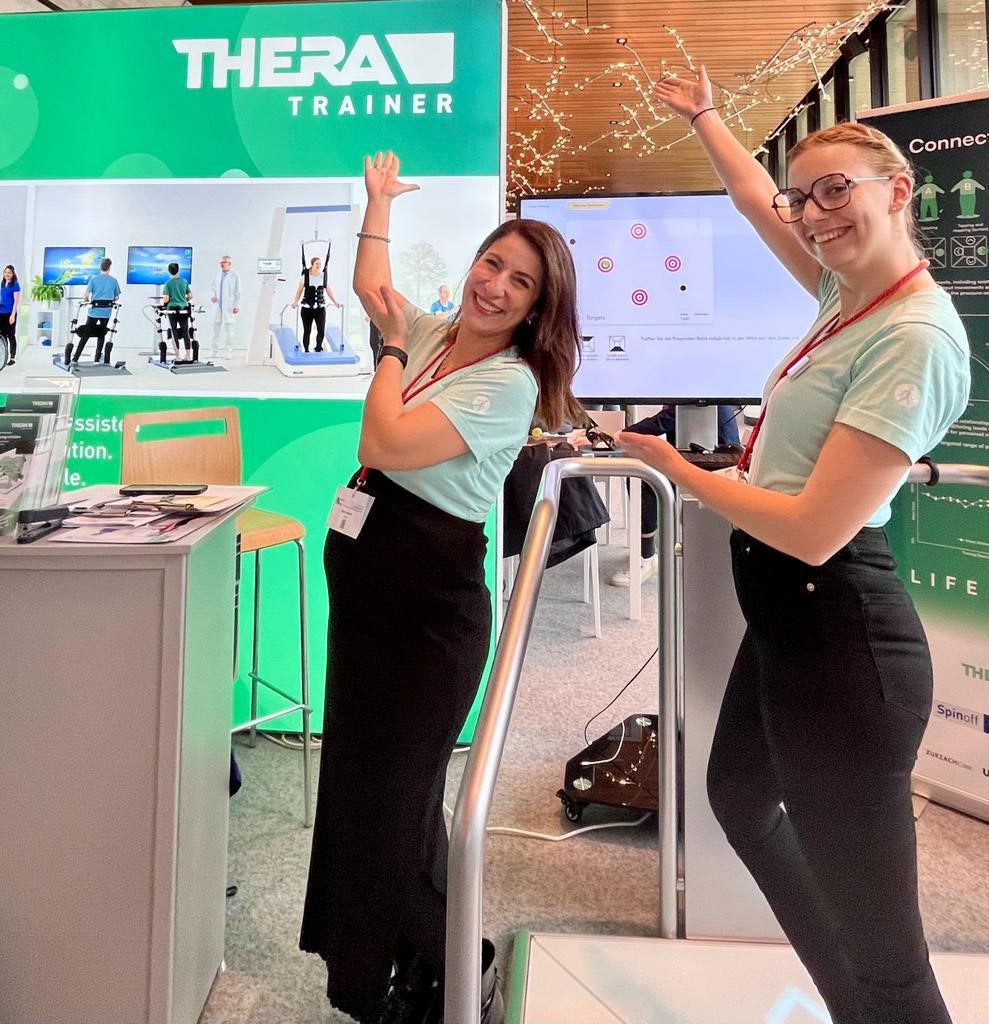
THERAPY-Magazin
Amazing possibilities
Explore the highlights of the joint neurorehabilitation conference 2023 in Augsburg. Discover insights on robotics, VR, AI, and the latest evidence-based therapies from DGNR, OeGNR, and SGNR.

Jakob Tiebel
Health Business Consultant
Conference review: Joint annual conference of the German Society for Neurorehabilitation (DGNR) e. V., the Austrian Society for Neurorehabilitation (OeGNR) and the Swiss Society for Neurorehabilitation (SGNR) with the theme of Amazing Possibilities.
From 14 to 16 December 2023, the joint annual conference of the German Society for Neurorehabilitation (DGNR) e. V., the Austrian Society for Neurorehabilitation (OeGNR) and the Swiss Society for Neurorehabilitation (SGNR) took place in Augsburg, with the theme of Amazing Possibilities. The conference, held in the city centre at Kongress am Park Augsburg, presented a wide-ranging programme in which leading experts from various specialist areas of neurology and rehabilitation presented the latest findings and perspectives.
The conference presidents, Prof Andreas Bender, Prof Susanne Asenbaum-Nan and Prof Adrian Guggisberg, conveyed the multifaceted nature of the conference theme Amazing Possibilities during the joint annual conference of the German Society for Neurorehabilitation (DGNR) e. V., the Austrian Society for Neurorehabilitation (OeGNR) and the Swiss Society for Neurorehabilitation (SGNR). Prof Bender highlighted the impressive therapeutic potential of the innovative field, which ranges from traditional therapeutic experience to robotics, virtual reality and AI-based applications. The effectiveness of evidence-based neurorehabilitation, which offers many patients surprisingly good recovery prospects, was particularly highlighted.
The conference presidents, Prof Andreas Bender, Prof Susanne Asenbaum-Nan and Prof Adrian Guggisberg, conveyed the multifaceted nature of the conference theme Amazing Possibilities during the joint annual conference of the German Society for Neurorehabilitation (DGNR) e. V., the Austrian Society for Neurorehabilitation (OeGNR) and the Swiss Society for Neurorehabilitation (SGNR). Prof Bender highlighted the impressive therapeutic potential of the innovative field, which ranges from traditional therapeutic experience to robotics, virtual reality and AI-based applications. The effectiveness of evidence-based neurorehabilitation, which offers many patients surprisingly good recovery prospects, was particularly highlighted.
The event marked a historic premiere as the first joint annual conference of the three national associations.
A primary goal of the conference presidents was not only to highlight the therapeutic possibilities, but also to present the outstanding training and further education opportunities, working conditions and career opportunities in neurorehabilitation. The conference therefore not only offered insights into the latest developments in the respective fields, but also into the extensive opportunities that this field of activity offers for specialists.
The event marked a historic premiere as the first joint annual conference of the three national associations. Augsburg, being only a short distance from the Austrian and Swiss borders, was an ideal setting for professional exchange and the strengthening of interdisciplinary cooperation between the DGNR, OeGNR and SGNR.
The event marked a historic premiere as the first joint annual conference of the three national associations. Augsburg, being only a short distance from the Austrian and Swiss borders, was an ideal setting for professional exchange and the strengthening of interdisciplinary cooperation between the DGNR, OeGNR and SGNR.

The accompanying specialised industry exhibition not only provided insights into the latest technologies and products in the field of neurorehabilitation, but also featured the THERA-Trainer stand as a returning highlight.
Selecting Augsburg as the venue for the conference was a well-considered and appropriate choice. Although neurorehabilitation is a relatively young field, Augsburg, one of the oldest cities in Germany, seemed to be the ideal location for the conference. Augsburg, which is easily accessible from all three countries, presented itself as a small and pleasant city with a rich tradition, particularly during the pre-Christmas season. The atmosphere in Augsburg and its reputation as a city of peace helped make the conference an inspiring and enjoyable event.
The accompanying specialised industry exhibition not only provided insights into the latest technologies and products in the field of neurorehabilitation, but also featured the THERA-Trainer stand as a returning highlight. This year, the important topic of postural control and balance took centre stage. The new THERA-Trainer senso, an interactive training device for evidence-based cognitive-motor training, made a strong impression. Its intelligent software analyses the patient’s activity level in real time and adapts the level of difficulty of the exercises to their individual performance level.
The accompanying specialised industry exhibition not only provided insights into the latest technologies and products in the field of neurorehabilitation, but also featured the THERA-Trainer stand as a returning highlight. This year, the important topic of postural control and balance took centre stage. The new THERA-Trainer senso, an interactive training device for evidence-based cognitive-motor training, made a strong impression. Its intelligent software analyses the patient’s activity level in real time and adapts the level of difficulty of the exercises to their individual performance level.

The effectiveness of evidence-based neurorehabilitation, which offers many patients surprisingly good recovery prospects, was particularly highlighted.
The fundraising campaign at the THERA-Trainer stand was particularly eye-catching. Every point scored by the conference participants when trying out the THERA-Trainer senso went towards a generous donation totalling €2,000 for the P.A.N. Centre Berlin. The impressive sum was donated to the neurological rehabilitation centre in support of its charitable goals. The joy of discovering new technologies thus went hand in hand with a contribution to a good cause.
Science
THERAPY 2024-I
THERAPY Magazine
Unternehmen

Jakob Tiebel
Health Business Consultant
Jakob Tiebel is OT and studied applied psychology with a focus on health economics. He has clinical expertise from his previous therapeutic work in neurorehabilitation. He conducts research and publishes on the theory-practice transfer in neurorehabilitation and is the owner of an agency for digital health marketing.
References:
Related contents
Find related exciting contents in our media library.
Mehr laden
This is not what you are searching for? Knowledge
Meet our specialists.
Are you interested in our solutions? Schedule a meeting with a Consultant to talk through your strategy and understand how TEHRA-Trainer can help you to advance rehabilitation.
You need to load content from reCAPTCHA to submit the form. Please note that doing so will share data with third-party providers.
More InformationYou are currently viewing a placeholder content from Turnstile. To access the actual content, click the button below. Please note that doing so will share data with third-party providers.
More Information